- Home
- About Us
- Products
-
Heat-Pump Dehumidifier DeAir
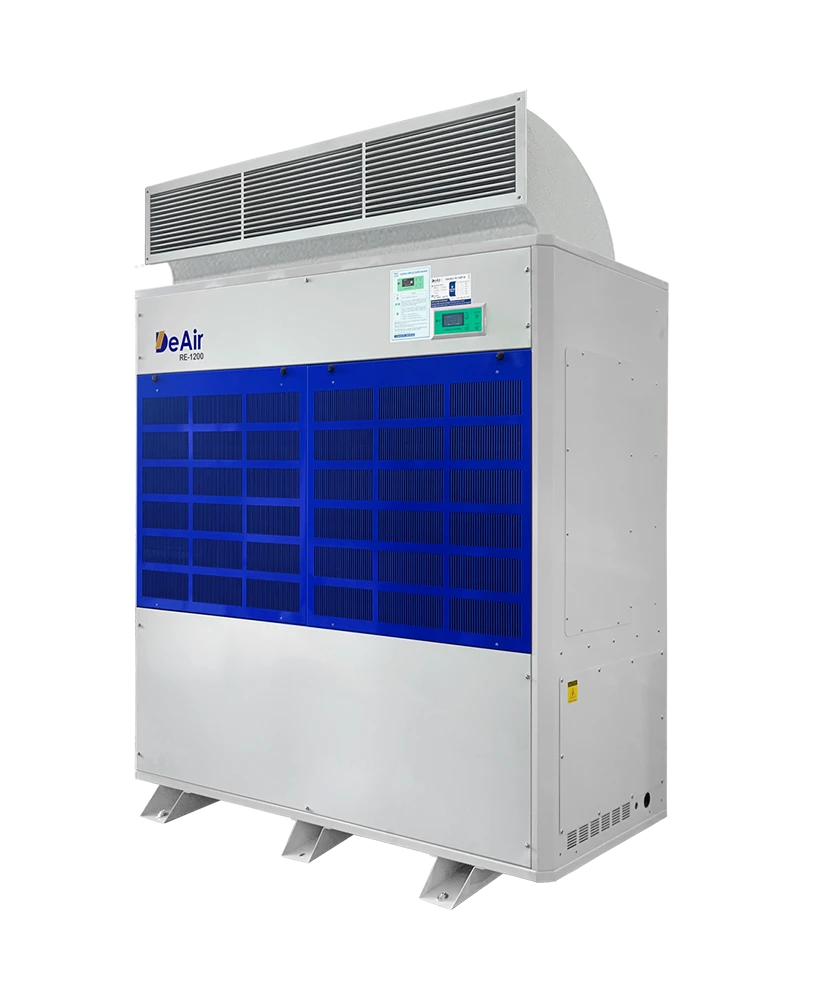 DeAir.RE
DeAir.RE -
Heat-Pump Dryer DeAir.RE-H
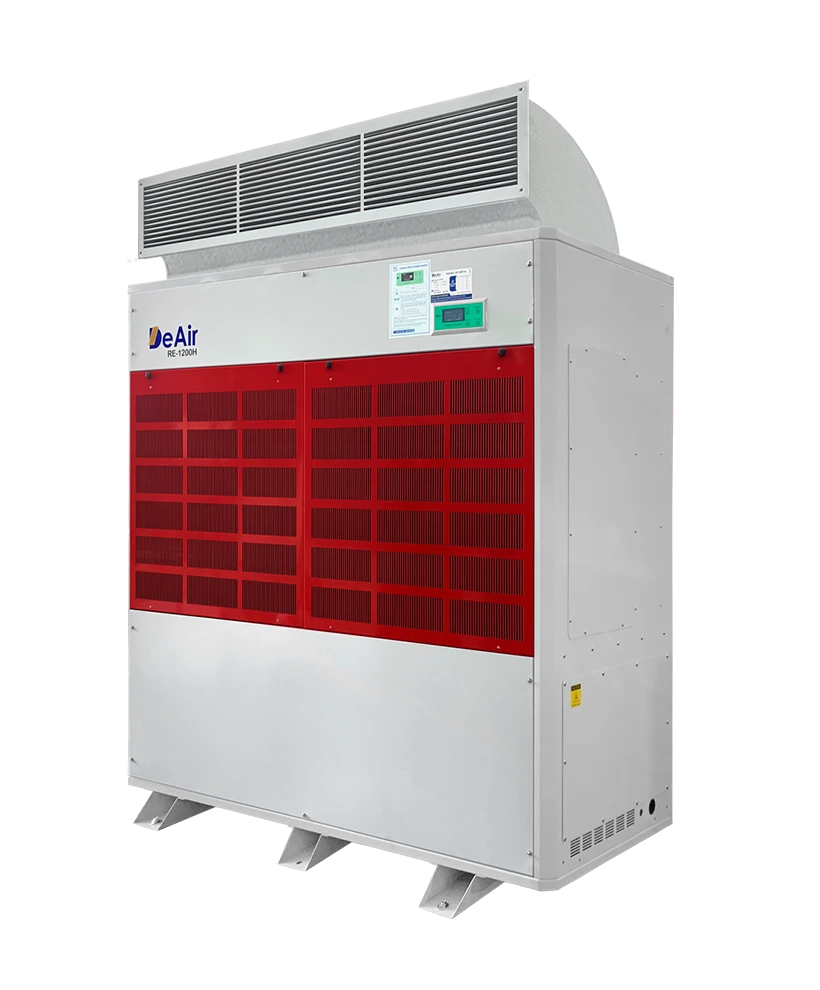 DeAir.RE-H
DeAir.RE-H -
Heat-Pump Stainless Steel Dehumidifier
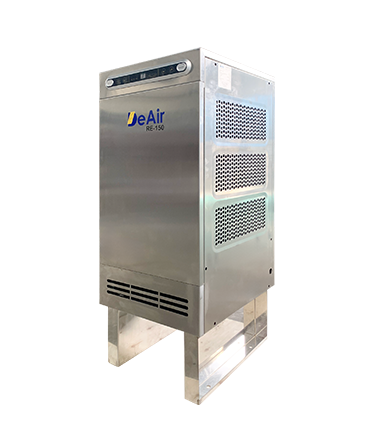 DeAir.RE-INOX
DeAir.RE-INOX -
Heat-Pump Isothermal Dehumidifier DeAir.CRE
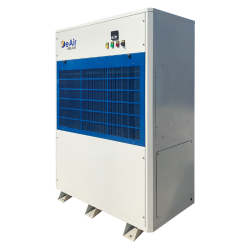 DeAir.CRE
DeAir.CRE -
Dezenno Dehumidifier
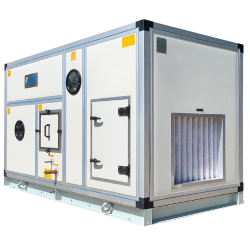 Dezenno
Dezenno -
Heat-Pump Ceiling Mounted Dehumidifier DeAir
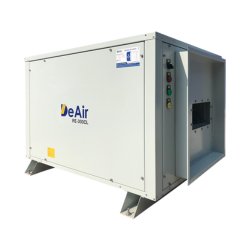 DeAir.RE-CL
DeAir.RE-CL -
Dehumidifier Olmas
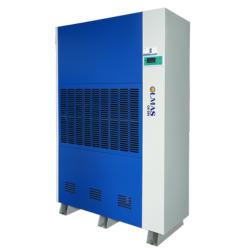 Olmas-OS
Olmas-OS -
Industrial Humidifier DeAir
 DeAir.HM
DeAir.HM -
Heat-Pump Dryer Daxwell
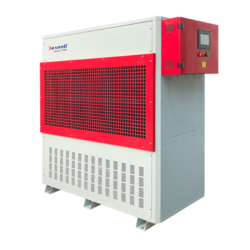 Daxwell
Daxwell -
Electric Duct Heater DeAir
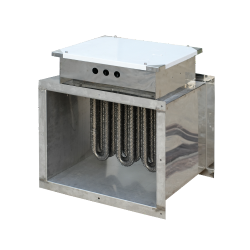 DeAir.Heat
DeAir.Heat -
Air Handling Unit Dezenno.MAX
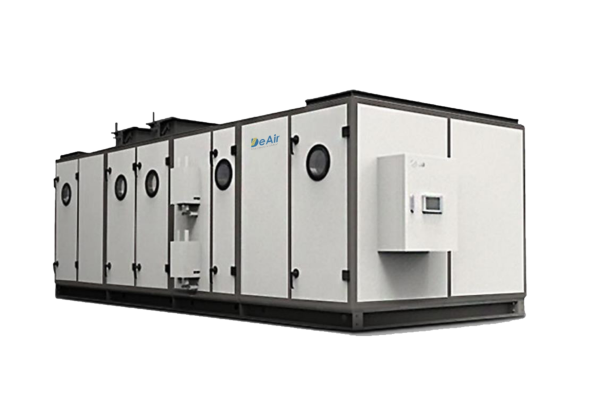 AHU
AHU
-
- Services
- Projects
- Warranty – Maintenance
- News
- Contact
All About Industrial Dehumidifiers: Detailed Guide for Businesses
09/10/2025
Introduction: The "Silent Enemy" Called Humidity in Production and Storage
In an industrial production environment, there is a "silent enemy" that quietly causes serious economic damage every day – Humidity. With Vietnam's characteristic tropical humid climate, air humidity often exceeds 80%, creating ideal conditions for a host of problems: exported garment shipments developing mold overnight, expensive electronic microchips oxidizing and having their lifespan reduced, pharmaceutical powders clumping and failing to meet standards, or even billion-dollar precision machinery rusting. This is not just a loss of assets, but also a decline in a company's reputation and competitive ability.
To win this silent war, an industrial dehumidifier is the foundational solution, a strategic investment that helps businesses proactively control the environment, protect assets, and optimize production processes. This article will serve as the most complete A-Z guide to help you thoroughly understand the issue and confidently choose the right product for your needs.

Table of Contents
- 1. What is an Industrial Dehumidifier?
- 2. Infographic: 5 Critical Benefits of Investing in an Industrial Dehumidifier
- 3. A Comparison of Common Industrial Dehumidification Technologies
- 4. Applications of Dehumidifiers in Key Industries
- 5. An A-Z Guide to Selecting the Right Industrial Dehumidifier
- 6. DeAir's Industrial Dehumidifier Lines: A Solution for Every Need
- 7. Frequently Asked Questions (FAQ)
1. What is an Industrial Dehumidifier?
An industrial dehumidifier is a specialized device designed to remove excess moisture from the air with high capacity, high durability, and the ability to operate continuously 24/7 in harsh environments. Unlike residential models, they are built with robust materials and have capacities ranging from tens to thousands of liters per day, aimed at precise humidity control for large spaces such as factories, warehouses, hospitals, and laboratories.
2. Infographic: 5 Critical Benefits of Investing in an Industrial Dehumidifier
Investing in an industrial dehumidification system is not an expense, but a strategic investment that brings direct and sustainable benefits to a business.
🛡️
Protect Goods & Assets
Prevents rust on machinery, mold on finished products, and damage to electronic components.
⚙️
Ensure Production Quality
Maintains stable humidity for processes like drying, coating, film wrapping, and microchip manufacturing.
❤️🩹
Improve Worker Health
A dry environment prevents the growth of mold and bacteria, protecting workers' respiratory health.
⚡
Save Energy Costs
More efficient than using air conditioners for dehumidification. Heat-Pump technology offers superior savings.
🏆
Enhance Reputation
Ensures consistent product quality, meeting strict export standards for humidity and mold.
3. A Comparison of Common Industrial Dehumidification Technologies
The market currently features three main dehumidification technologies, each with its own advantages and disadvantages. Choosing the right one is crucial for both effectiveness and investment cost. As highlighted in professional training from ASHRAE (American Society of Heating, Refrigerating and Air-Conditioning Engineers), managing humidity is critically important in modern buildings and factories.
| Criteria | Refrigerant Condensing | Desiccant Rotor | Heat Pump |
|---|---|---|---|
| Principle | Cools air to condense water vapor. | Uses a silica gel rotor to absorb moisture. | Similar to condensing but reuses heat energy. |
| Pros | Low initial investment cost. | Works at very low humidity (<40%RH) and sub-zero temperatures. | Superior energy savings, highly efficient. |
| Cons | Performance drops at low temperatures (<15°C). | High investment and operating costs. | Higher initial cost than standard condensing units. |
| Best For | General warehouses, production areas with temperatures > 20°C. | Cold storage, battery manufacturing, pharmaceuticals. | Most industrial applications in Vietnam. |
4. Applications of Dehumidifiers in Key Industries
Different industries have unique humidity requirements. Here are some typical applications:
Food Processing and Preservation
Problem: High humidity causes powdered products (sugar, milk powder, spices) to clump; dried products (dried fruit, snacks, biscuits) to lose their crispness; and promotes mold growth on agricultural products and confectionery, reducing quality and food safety.
Solution: A dehumidifier helps maintain storage humidity at 40-50%RH, ensuring products stay dry, retain their quality, and have a longer shelf life.

Pharmaceutical and Medical Device Manufacturing
Problem: The pharmaceutical industry requires strict adherence to GMP-WHO standards. Uncontrolled humidity can alter the active ingredients of drugs, cause powder caking, damage film-coated tablets, and create an environment for bacterial growth in cleanrooms.
Solution: Industrial dehumidifiers help maintain humidity in production rooms, labs, and drug storage areas below 50%RH, ensuring a sterile environment and stable product quality.

Wood and Furniture Industry
Problem: Wood is a naturally hygroscopic material. As air humidity changes, wood absorbs or releases moisture, causing it to shrink or expand, which leads to warping, cracking, and joint failure. Mold can also easily grow on wood surfaces, damaging the finish and reducing the product's value.
Solution: A dehumidifier stabilizes the humidity in workshops and finished goods warehouses, ensuring the wood's moisture content remains at a balanced level, keeping furniture products durable and beautiful.
5. An A-Z Guide to Selecting the Right Industrial Dehumidifier
Choosing the right dehumidifier involves more than just looking at its capacity. Here is the 4-step process DeAir's experts always recommend to clients:
Infographic: 4 Steps to Choose an Effective Industrial Dehumidifier
1
Define Needs
Area, required humidity, temperature, room tightness, and other moisture sources.
2
Calculate Capacity
Estimate the moisture load (Liters/day). Consult an expert for the most accurate results.
3
Select Features
Continuous drainage, mobility, smart control panel, noise level, and other special requirements.
4
Evaluate Brand & Service
Reputation, warranty policy, and local technical support.
6. DeAir's Industrial Dehumidifier Lines: A Solution for Every Need
DeAir is proud to be a reputable manufacturer in Vietnam with an ISO 9001:2015 certified quality management system, offering a diverse range of solutions for every need:
- Need energy savings for common applications? → The DeAir.RE series is the optimal choice.
- Operating in a high-temperature environment? → The DeAir.RE-H (Heat-Resistant) series.
- Need a solution for corrosive or hygienic environments? → The DeAir.RE-INOX series.
- Need to dehumidify without raising the temperature? → The DeAir.CRE (Isothermal) series.
- Need ultra-low humidity or sub-zero temperature operation? → The Dezenno (Rotor) series.
- Need to save floor space? → The DeAir.RE-CL (Ceiling-Mounted) series.
To explore in detail, please browse our range of genuine industrial dehumidifiers.
7. Frequently Asked Questions (FAQ)
1. Are industrial dehumidifiers expensive to run?
Energy consumption depends on the capacity and technology. However, DeAir's industrial dehumidifiers using Heat-Pump technology can save up to 50% on electricity compared to methods like using electric heaters for drying or using air conditioners for dehumidification, making the long-term operating costs very efficient.
2. How often should an industrial dehumidifier be serviced?
The maintenance frequency depends on the environment. The most critical task is cleaning the dust filter, which should be done weekly or more often in dusty environments. Comprehensive maintenance should be performed every 3-6 months to ensure performance and longevity.
3. Can I use an industrial dehumidifier for a large room at home?
Theoretically, yes, for very large spaces like basements or personal warehouses. However, industrial dehumidifiers are louder and not designed for aesthetics. For living spaces, you should opt for high-capacity residential models, such as the Olmas OS-55.
4. Does the noise from the machine affect the working environment?
The noise level of an industrial dehumidifier is comparable to industrial fans or AC condenser units, which is perfectly acceptable in a factory environment. However, for quiet areas like labs or libraries, soundproofing solutions or placing the unit in a separate technical room should be considered.
Conclusion
Humidity control is no longer an option but a requirement for ensuring quality and sustainable growth in the modern industrial environment. The right industrial dehumidifier is a long-term profitable investment that protects assets, optimizes processes, and enhances product quality.
Here, you can view the details of our industrial dehumidification products.
Contact DeAir's Expert Team Today!
We are ready to provide an on-site survey, consultation, and a free price quote for the most suitable solution for your business.
DEAIR JOINT STOCK COMPANY
Email: operation@deair.com.vn
Hotline: +84 925 977 579 (Ms. Tam) | +84 914 205 850 (Ms. Hoa)
Website: deair.com.vn
Sign up for news from DeAir
Related news






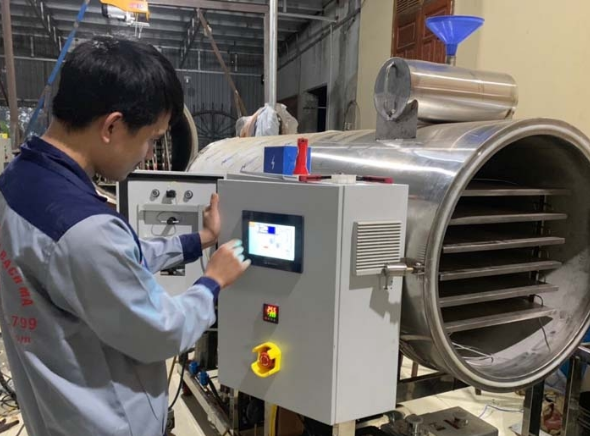



![[Case Study] DeAir Installs DeAir.De Rotor Humidity Control System for Pharmaceutical Plant in Binh Duong [Case Study] DeAir Installs DeAir.De Rotor Humidity Control System for Pharmaceutical Plant in Binh Duong](https://deair.com.vn/thumbs/news/2023_04/ban_giao_may_cho_duoc_bd/[270x153-cr]image1-1024x772.jpg__cv.webp)

![[Review & Guide] Olmas OS-300: The New Humidity Control "Warrior" for Medium to Large Warehouses [Review & Guide] Olmas OS-300: The New Humidity Control "Warrior" for Medium to Large Warehouses](https://deair.com.vn/thumbs/news/huong_dan_su_dung_may_olmas_21/[270x153-cr]vtm06440.png)